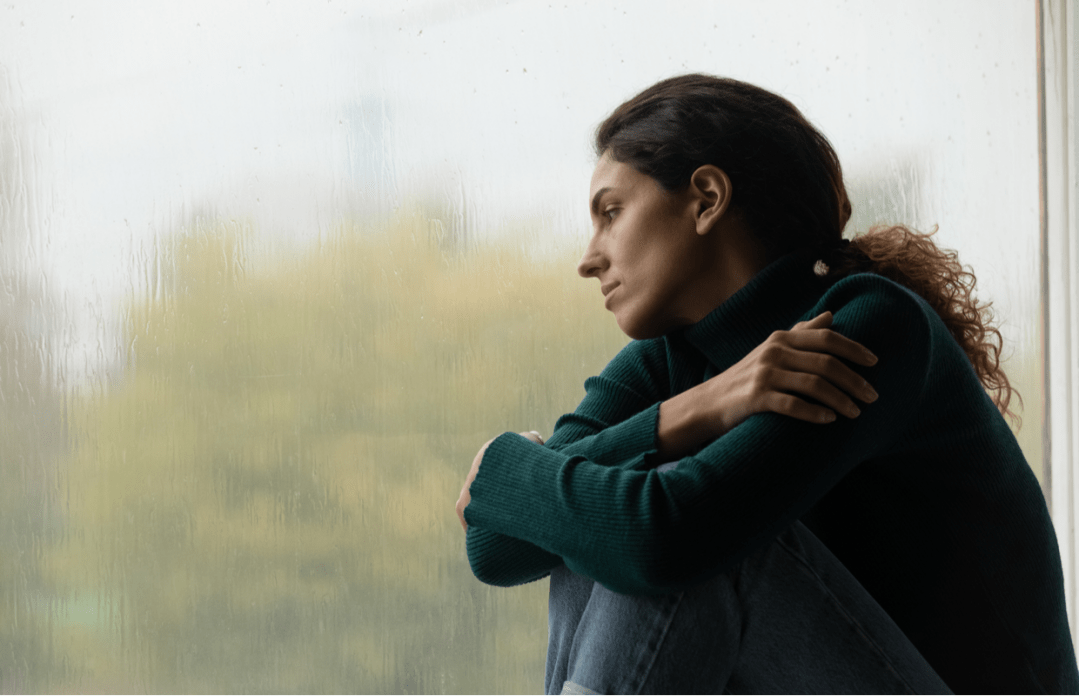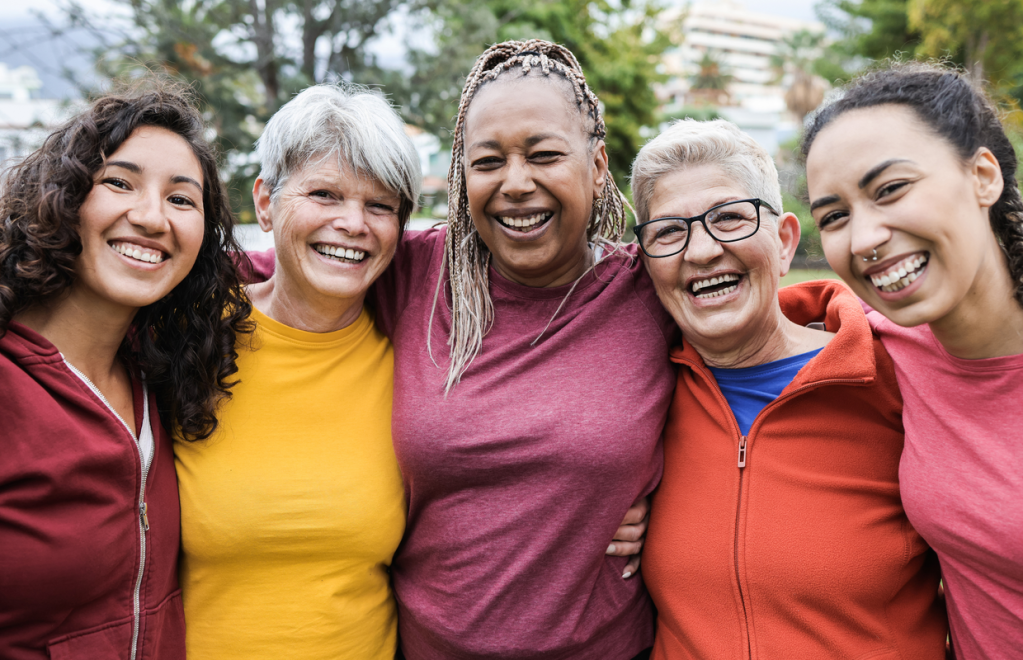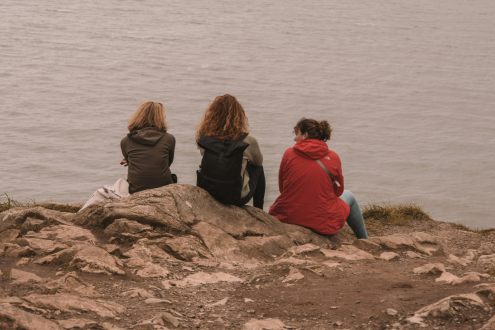How to stop feeling lonely
The extent of loneliness is so wide that experts have called it an epidemic. We take a closer look at the issue, before sharing some top tips on how to stop feeling lonely...

It’s never been easier to stay connected, so why do so many of us feel lost and alone? Rebecca Frank discovers how to find solace in solitude, celebrate friendship, and forge new connections, in a bid to stop feeling lonely…
When you think of loneliness, you probably imagine an elderly person living alone, with little or no family. And while old age can be a lonely time, the truth is, loneliness affects people of all ages and stages of life.
It could be the person whose marriage is failing, the single 20-something working from home, the student in a new city, or the parent left at home missing them. You can have 500 friends on Facebook and still feel lonely– or a 25-year marriage and three children.
The loneliness epidemic
The extent of loneliness is so wide that experts have called it an epidemic, and its impact on our health has been compared to smoking 15 cigarettes a day, and worse than the risks associated with obesity.
I experienced what I now recognise as loneliness after having my first baby. It wasn’t acute like anxiety or debilitating like depression, but it was a gnawing feeling of disconnection from the world. It felt as if everything was going on as normal, but I was on the edge of it all.
I felt it again after my dad died, a few years ago; that same bubble formed around me, and I found it hard to connect with anyone. On both occasions, the feelings of loneliness passed, as I connected with people, got more sleep, and talked about how I was feeling.
Loneliness can be a difficult emotion to recognise, and even harder to talk about. We talk about feeling angry or sad, but loneliness is harder to define – and more shameful, somehow.

The two types of loneliness
Psychologist Dr Audrey Tang explains how there are two types of loneliness: emotional (when your emotional needs aren’t being met), and social (not having a wider network of friends).
‘Unfortunately, in a fast-paced world where change happens more frequently, people move house, change jobs and travel more, so friendships can become less rooted, and are certainly less easy to form,’ she explains.
Dr Tang also adds that the pandemic has caused a big shift in lifestyle habits, with more people working from home and making big life changes, having had the chance to reassess their values.
Loneliness verses isolation
While loneliness can certainly stem from being alone, it’s perfectly possible to be alone and not lonely, or to feel lonely in a crowd.
‘Unlike isolation, which is objective and based on the number of social connections one has, loneliness is subjective; it’s deeply personal and will depend on the individual experiencing it,’ says Cheryl Rickman, a Positive Psychology practitioner and author of Navigating Loneliness: How to Connect with Yourself and Others (£7.85).
It’s common to believe that you’re the only person experiencing it, but it’s important to know that loneliness is extremely common.
‘It has the weird property of being utterly ubiquitous yet feeling completely unique,’ says Arthur C Brooks, author of From Strength To Strength (Bloomsbury, £17.99), adding: ‘Lonely people often feel very alone in their loneliness.’
And this is exactly why we need to talk about it, become aware of the signs (in ourselves and others), and get to know the strategies for overcoming it.
How to stop feeling lonely
From forming bonds with like-minded people to finding joy in solitude, learn how to stop feeling lonely with these top tips…

1. Grow to like being alone
This might sound like the last thing you need, but there are many benefits that can come from solitude; becoming comfortable with being alone helps you to get to know yourself better and to grow in confidence.
‘The positive power of solitude comes from the realisation that solitude isn’t being by yourself, it’s being with yourself,’ says Rickman, who describes alone time as a place of retreat and renewal, rather than something to fear.
‘What if, rather than seeing solitude as “lonely time”, we saw it as a beautiful opportunity for serenity amid the busyness of life?’
Savour your alone time
When we have time alone, Rickman recommends doing things that lift us up and help us connect with ourselves or with the world around us, so we become accustomed to being alone without feeling lonely.
Think of activities that you love to do but probably rarely find time for, and enjoy doing them uninterrupted at your own pace – whether that’s watercolour painting or dancing around the kitchen to your favourite songs.
‘Being by yourself gives you the chance to be yourself, too. When there’s nobody else around, you don’t need to pretend. And you get the opportunity to work through worries, gain perspective, and make future plans.’
Try journalling in your free time
You can help this process by writing things down, either in a journal using bullets and prompts, or by free-writing, where you just write continuously without structure, as away of getting your thoughts down on paper.
Daydreaming is another wonderful way to access your inner thoughts and feelings, using your imagination to ponder what is and isn’t working in your life.
Whatever you choose to do with your alone time, Rickman says it’s about giving yourself the attention you deserve, and making sure you respond to yourself with compassion, encouragement, and respect.
‘The more you value yourself, the less tolerance you have for people who don’t. So, when you do connect with others, you’ll be drawn to those that treat you well.’
If you’re often busy and surrounded by people, but experiencing feelings of disconnection, the soothing solace of solitude could be just what you need.

2. Find your people
This might seem easier said than done, especially if you’re already disconnected, but there are steps that anyone can take to increase their social connections.
‘I like to reframe loneliness as being a useful signal, alerting us to the fact that our connection gauge is empty and we need to take action,’ says Rickman.
While you can’t wave a wand and a group of close friends suddenly appears, you can increase contact with people in different ways, and all the evidence suggests these connections play a key role in our health and happiness.
Our relationship with our partner is usually the most crucial for our happiness, but relationship satisfaction is what matters most.
While evidence shows that married people are less lonely than those who are divorced, widowed or have never married, the loneliest of all are those who are married but with an ‘absent’ spouse.
Nurture friendships outside your marriage
‘The most satisfying relationship is a compassionate one, where your spouse is also your bestfriend,’ says Brooks. ‘However, marriage cannot be your only true friendship, as that will put the relationship under pressure to fill every emotional role, which makes rough patches harder to manage.’
Friendships are important throughout life, and it’s perfectly possible to be single and happy if you have other fulfilling friendships and family links.
Connect with your community
In addition to these, we need casual connections with those who we share interests with, or just people we happen to see as we go about our day. Those quick hellos, smiles and exchanges of small talk all help satisfy that need for human interaction.
‘Try working out what it is you’re missing – for example, a group to associate with, engagement in a hobby, or people dropping in to your home,’ suggests Dr Tang, ‘then take steps to rebuild that network.’
You could sign up for a class where you’re likely to meet like-minded people. ‘According to research, choir groups can generate the most satisfying social bonds because of the ice-breaker effect of singing together,’ says Rickman. Or invite some people over – it can be surprisingly energising to host others.

3. Be yourself
Sometimes, the sheer act of carrying out all your different roles can feel exhausting and lonely, especially if you don’t feel like you’re being true to yourself.
This might be at work or in your relationships, or just a general feeling that you’re not getting enough space to be who you are and to do what you love.
‘We all spend a lot of time performing adaptive roles,’ says Dr Tang, referring to how we flip from professional to partner to child and so on, as we go about our daily lives.
Get to know your true self
She suggests ways to reconnect with your authentic self by spending time doing things that you enjoy, and with the people you feel that you can truly be yourself with.
‘These people know your authentic self; they’re the people you confide in and make time for readily, and who you know as much about as they do about you. They’re also much harder to “replace”, and you’ll feel lonely without them.’
Reconnect with old friends
If you’ve lost touch with someone and are feeling that friend-shaped hole in your life, pick up the phone and call them, or send them a message to let them know you’re thinking about them. The chances are they’ll be delighted to hear from you.
Being true to yourself can also mean opening up to feelings of loneliness and any other emotional problems you might have, because struggling in silence and on your own is a very lonely place to be.

4. Find enough purpose
Purpose doesn’t mean that everything you do should have a relevant cause or be for the greater good (that’s exhausting, and ultimately dispiriting, because it can’t!), but if you feel a general lack of purpose, it can impact your wellbeing and cause feelings of loneliness and isolation.
Martin Seligman, the founder of Positive Psychology, named a sense of purpose as one of the three pillars of happiness. As we get older, it’s common to feel our sense of purpose changing and possibly waning – our kids need us less, and we might feel less relevant or happy in the work we do.
Get involved in your community
Dr Tang says: ‘An easy way to find a greater sense of purpose is to get involved in your community. Not only do you get to regularly meet like-minded people, but you can also develop skills and see the altruistic benefits of what you’ve put in.’
Community work doesn’t have to be about regular volunteering – it can be helping with a one-off event that utilises your skills or contacts, or you could become a trustee or get involved in campaigning.
‘You may find that local charities could really use the strengths that you’re able to offer,’ says Dr Tang.

5. Spend more time in nature
People who spend time outdoors in nature are less lonely, according to research. This could be especially important if you live in crowded urban spaces, say researchers from King’s College, who tracked people living in cities around the world with the Urban Mind app.
Their research showed that looking at trees and the sky reduced feelings of loneliness by up to 28 per cent. This increased to almost 40 per cent if they also felt included in their community.
Getting outside in the morning and experiencing the wellbeing boost from the green space and the natural light at its most intense will lift your mood, and make you feel energised and more inclined to interact with others.
If you lift your head, put your phone away and smile at people while you’re out, you’ll get an even bigger wellbeing boost.
Get out for a morning walk
‘If you get into a routine of walking around your local park or outside space every morning, it gives you the opportunity to meet others also routinely going about their days. Regularly seeing the same faces helps us feel connected to a community,’ says Rickman.
Exercising in a group environment will give you an endorphin rush from the physical activity and help you feel more connected and supported, too. Why not try a parkrun, or join a walking or running group or an outdoor fitness class?
‘Movement asks us to be the best version of ourselves and good friends to other people,’ says psychologist Dr Pippa Grange. ‘Do it in a group and you’ll feel supported, encouraged and congratulated, as if you’re moving together as one.’
More inspiration: How to stop negative thoughts and beliefs about yourself
Words: Rebecca Frank | Images: Shutterstock









